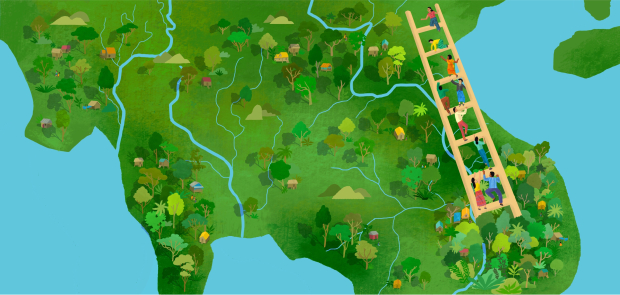Special report: Mekong countries are opening up decision-making processes on forest governance to civil society
Discussion details

RECOFTC releases a new report on how five Mekong countries are opening up decision-making processes to civil society as they reform policies and laws governing forests.
Their participation is essential because policies and laws are more likely to be effective if the people they affect have a say in their design. Indeed, the act of developing policies and laws in a participatory way can bridge gaps among groups with diverse and often conflicting interests, leading to sustainable results.
Participation encompasses a broad range of activities. At its most basic, it involves people being told by governments about new laws but not being able to shape those laws. Climb up the ‘ladder of participation’ you will find governments that are more open to consulting the public before they act. Higher still and you will find governments that work in active partnership with civil society groups to develop, implement, monitor and improve policies and laws. While no Mekong country is yet at the top of the ladder, evidence shows that they are climbing.
Take Myanmar, for example.
“In 2016 and again in 2019, the Community Forestry Instructions were revised and updated with high involvement of civil society organizations, the private sector and government departments,” says Aung Thant Zin, chief executive officer of the Myanmar Environment Rehabilitation-conservation Network.
Although there are many examples of progress, more is needed to build on these successes and overcome entrenched challenges. The special report explores why participation matters, how it is happening, the challenges that prevent more effective participation and ways to overcome them.
The report includes stories from Cambodia, Lao PDR, Myanmar, Thailand and Viet Nam. The Voices for Mekong Forests (V4MF) is an EU-funded project that aims to strengthen the participation of non-state actors in forest landscape governance across the Mekong region. RECOFTC leads the project in partnership with WWF-Greater Mekong, the East-West Management Institute-Open Development Initiative, Nature Economy and People Connected, the NGO Forum on Cambodia, the Lao Biodiversity Association, the Myanmar Environment Rehabilitation-conservation Network, Raks Thai Foundation and People and Nature Reconciliation.

Log in with your EU Login account to post or comment on the platform.